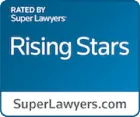Wrongful Termination Lawyer in Tallahassee

Have you been terminated from your job? Do you think your employer had an improper motive for firing you? If so, you may have a legal claim against your employer for wrongful termination. A worker has the right to file a wrongful termination against their employer if they suspect that the basis for their termination pertained to any of the legally protected attributes. These could include age, race, sex, nationality, disability, gender, pregnancy, color, sexual orientation and identity, or even retaliation for voicing concerns over harassment or discrimination. If you need to file a complain against your employer, turn to a Tallahassee wrongful termination lawyer with Cruz Law Firm, P.A., for help defending your rights and demanding just compensation.
Our firm has extensive experience representing Florida workers in some of the most challenging employment matters. Our employment discrimination attorneys have nearly two decades of experience in the field and have taken more than 100 cases to trial in both federal and state courts. We are also frequently asked to speak across Florida on employment and labor litigation issues.
With our firm on your side, you can feel confident that you have dedicated, seasoned legal advocates who will not rest in their pursuit of the full compensation and accountability you deserve after being wrongfully terminated by your employer.
You have rights as an employee. We want to enforce them. Reach out to Cruz Law for an initial claim review with a Tallahassee wrongful termination attorney. Consultations are confidential and come with no obligation.
What Is Considered Wrongful Termination in Florida?
Wrongful termination occurs when an employee is fired or let go for unlawful reasons. A wrongful termination can also occur when an employee is constructively discharged — that is, when they resign from a job due to discrimination or harassment that creates a working environment so hostile that no reasonable person could endure it.
Can I Be Terminated While on Workers’ Comp?
An employer can terminate an employee on workers’ compensation if the employee cannot perform the essential functions of their job due to a work injury or occupational illness. However, Florida’s workers’ compensation law makes it illegal for employers to terminate an employee in retaliation for seeking workers’ compensation benefits. Unfortunately, it is difficult to determine whether an employee was fired for a legitimate reason or as retaliation for their workers’ comp claim.
Examples of Wrongful Termination
A worker might have a wrongful termination claim if their employer fired them due to any of the following:
Discrimination
Employees may raise a claim of wrongful termination after being fired because they have protected characteristics such as race, color, national origin, religious beliefs, disability, age, sex/gender, sexual orientation, pregnancy, or marital status.
Family and Medical Leave Act (FMLA)
Employees who are fired after requesting or taking protected leave under the FMLA, with the help of an FMLA lawyer, can sue their employer for wrongful termination.
Whistleblower
Workers who report illegal, unethical, or fraudulent conduct by their employer can pursue a wrongful termination case if they are fired in retaliation for becoming a whistleblower.
Sexual Harassment/Hostile Work Environment
Employees who are fired in retaliation arising from sexual harassment, such as refusing romantic/sexual advances or demands for sexual favors, may pursue a wrongful termination claim. They can also pursue a claim if sexual harassment becomes so unbearable that they are forced to quit to stop it.
What Are the Wrongful Termination Laws in Florida?
Laws exist at both the state and federal levels to protect workers from wrongful termination. Some of the Florida-specific labor laws include:
- Florida Civil Rights Act – Outlaws discrimination against workers on the basis of race, color, national origin, religious belief, sex, disability, pregnancy, or marital status.
- Florida Statues 440.205 – Prohibits the retaliatory discharge of employees who file for worker’s comp benefits.
- Florida Statutes 448.102 – Illegalizes the termination of an employee who reports unlawful or unethical conduct by their employer or objects to participating in unlawful conduct by their employer.
- Florida Statutes 112.3187 – Makes illegal the termination of a public employee who reports a violation of a law, rule, or regulation by their employer.
The federal government also protects against wrongful termination through the following laws:
- Title VII of the Civil Rights Act of 1964 – Makes it illegal to discriminate or retaliate against a worker on the basis of a protected characteristic, such as race, color, national origin, religious belief, sex/gender, or sexual orientation.
- Age Discrimination in Employment Act – Prohibits discrimination against workers age 40 and older.
- Fair Labor Standards Act – Protects employees against wrongful termination for complaining to their employer about wage and hour violations
- False Claims Act – Provides protections for employees who disclose their employer’s fraudulent activities involving federal agencies or contracts or fraudulent claims for reimbursement from federal programs such as Medicare
- Family and Medical Leave Act (FMLA) – Outlaws the termination of employees in retaliation for requesting or taking eligible leave
Wrongful Termination Claim
You can sue your employer for financial losses or other legal relief if you believe your employer terminated you in violation of state or federal law. Moreover, you might have grounds to file a claim with the state or federal government.
How to Prove Wrongful Termination
Evidence that can help you prove you were wrongfully terminated includes:
- Your employment agreements and your employer’s HR and corporate policies
- Copies of any internal HR complaints you filed
- Copies of your workers’ compensation or FMLA requests
- Copies of any records from whistleblower claims you may have filed against your employer
- Eyewitness testimony of discrimination or harassment you suffered
- Copies of emails, text messages, internal messaging system posts, or social media posts demonstrating discrimination, harassment, or retaliation
- Your performance reviews
- Recordings or notes of in-person conversations or phone/video calls
This evidence can help support an inference that you were fired for an improper purpose. Your employer may try to argue that you were fired for a legitimate purpose, such as inadequate performance, misconduct, or corporate financial difficulties. However, you can prove that your employer’s explanation is merely a pretext for wrongful termination by presenting additional evidence, such as:
- Suspicious timing between a protected activity and your termination
- Increased scrutiny of your job performance immediately before your termination
- Changing explanations for your termination
- Comments made by managers and supervisors before or during your termination that suggest an improper motive
Types of Damages in a Wrongful Termination Lawsuit
By filing a lawsuit against your employer for your wrongful termination, you can pursue financial and legal relief such as:
- Lost back pay that you would have earned between your termination and the resolution of your legal claim
- Lost front pay that you would have earned after your claim if not for the loss of your job and career advancement opportunities
- Compensation for emotional distress caused by your termination, including costs of medical and mental health care
- Reimbursement of costs of finding and moving to a new job
- Reimbursement for legal expenses
- Legal relief, such as a court order reinstating your job
- Punitive damages to punish your employer for egregious conduct
How Long Do I Have to File a Wrongful Termination Claim?
You may face various deadlines on your wrongful termination claims, depending on the circumstances of your termination. In many cases, a wrongful termination must begin with a charge filed with the U.S. Equal Employment Opportunity Commission or the Florida Commission on Human Relations (FCHR).
An EEOC charge must be filed within 180 days of notification of your termination or the date that you learned you might have been wrongfully terminated. However, this deadline may be extended to 300 days if your employer’s actions were prohibited by state or local law, as in Florida.
After you have filed this with the help of an EEOC attorney, the agency may issue a notice of right-to-sue, permitting you to file a lawsuit in federal court against your employer. You have 90 days after receiving the notice to file suit.
If you are going through the FCHR, you must file your claim within 365 days of your termination or the date you learned that your termination was improper.
Our core values and mission are embodied in the acronym “Cruz C.A.R.E.S.” Here’s what it stands for:
How an Employment Lawyer Can Help in a Wrongful Termination Case
Turn to a Tallahassee employment lawyer from Cruz Law for help after you have been wrongfully terminated from your job. Our firm can help you pursue relief and recovery following the loss of your job by:






Talk to our Seasoned Tallahassee Wrongful Termination Lawyers Today
Losing a job is always hard, but it can be particularly so for those targeted for termination by discriminatory or retaliatory employers. If you were fired in violation of your rights as a worker, you could be owed substantial compensation for what you’ve suffered. The attorneys with Cruz Law want to help you demand it.
Contact us today for a confidential consultation to talk with a Tallahassee wrongful termination lawyer about your options during this critical juncture. We can help you better understand what to expect as you pursue compensation and justice in a wrongful termination claim. Our law firm represents workers in Tallahassee, Jacksonville, and everywhere along the Florida Panhandle.






